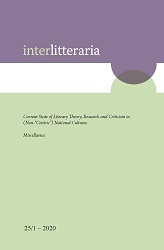First as Creon, then as Chorus: Slavoj Žižek’s Antigone
First as Creon, then as Chorus: Slavoj Žižek’s Antigone
Author(s): Matic KocijančičSubject(s): Slovenian Literature, Contemporary Philosophy, Drama
Published by: Tartu Ülikooli Kirjastus
Keywords: Slavoj Žižek; Antigone; Sophocles; Bertolt Brecht; Jean Anouilh; Dominik Smole; Slovene drama;
Summary/Abstract: The article critically evaluates The Three Lives of Antigone, Slavoj Žižek’s first dramatic work. Žižek’s polemical rewriting of Sophocles’ tragedy is examined in the broader perspective of Žižek’s philosophy and other Antigones: those of Sophocles, Jean Anouilh, Bertolt Brecht and Dominik Smole. Slavoj Žižek has interpreted Sophocles’ Antigone in numerous philosophical works. In his earlier treatises, he mainly gave a cautious summary of Hegel’s, Heidegger’s and Lacan’s theses on Antigone; lately, however, Žižek’s attitude to Sophocles’ Antigone has grown decidedly negative. The main point in Žižek’s critique of Sophocles’ tragedy is that his Antigone is not an appropriate symbol of genuine social revolt. Based on this conviction, Žižek contrived his own version of Antigone with an alternative ending in which the choir carries out a revolution and condemns Antigone to death. It is argued in the article that Žižek’s dramatic project fails to convince. It is essentially a superficial apology for political violence, which can ultimately only be understood as a veiled defence of the political status quo.
Journal: Interlitteraria
- Issue Year: XXV/2020
- Issue No: 1
- Page Range: 231-245
- Page Count: 15
- Language: English

